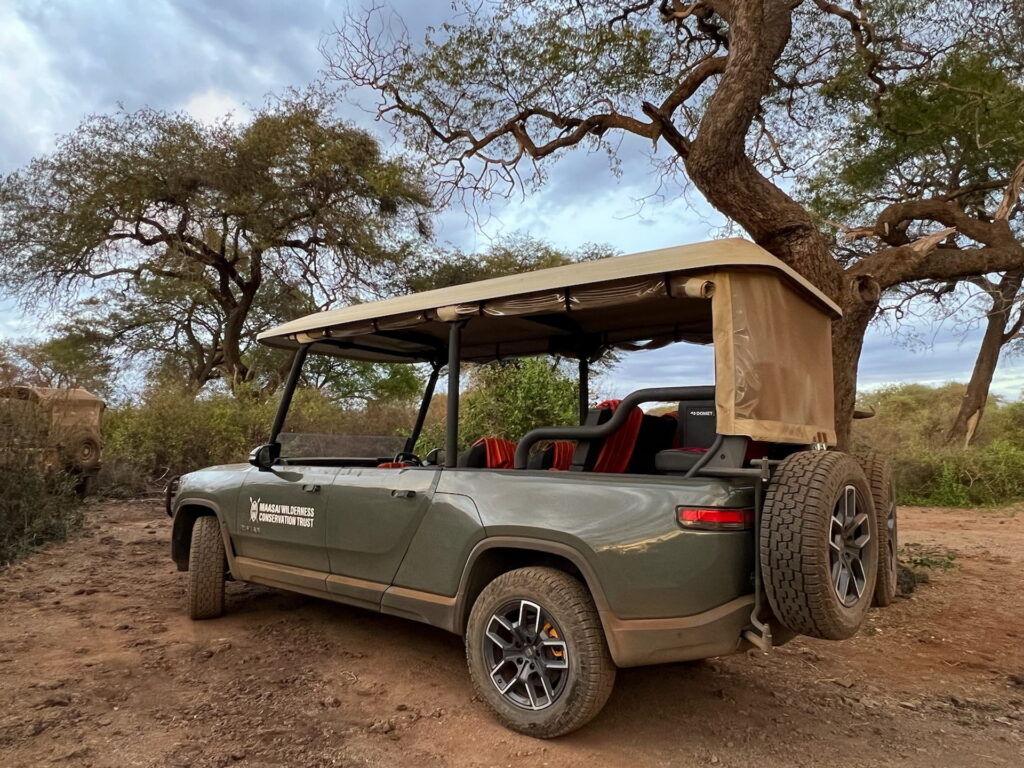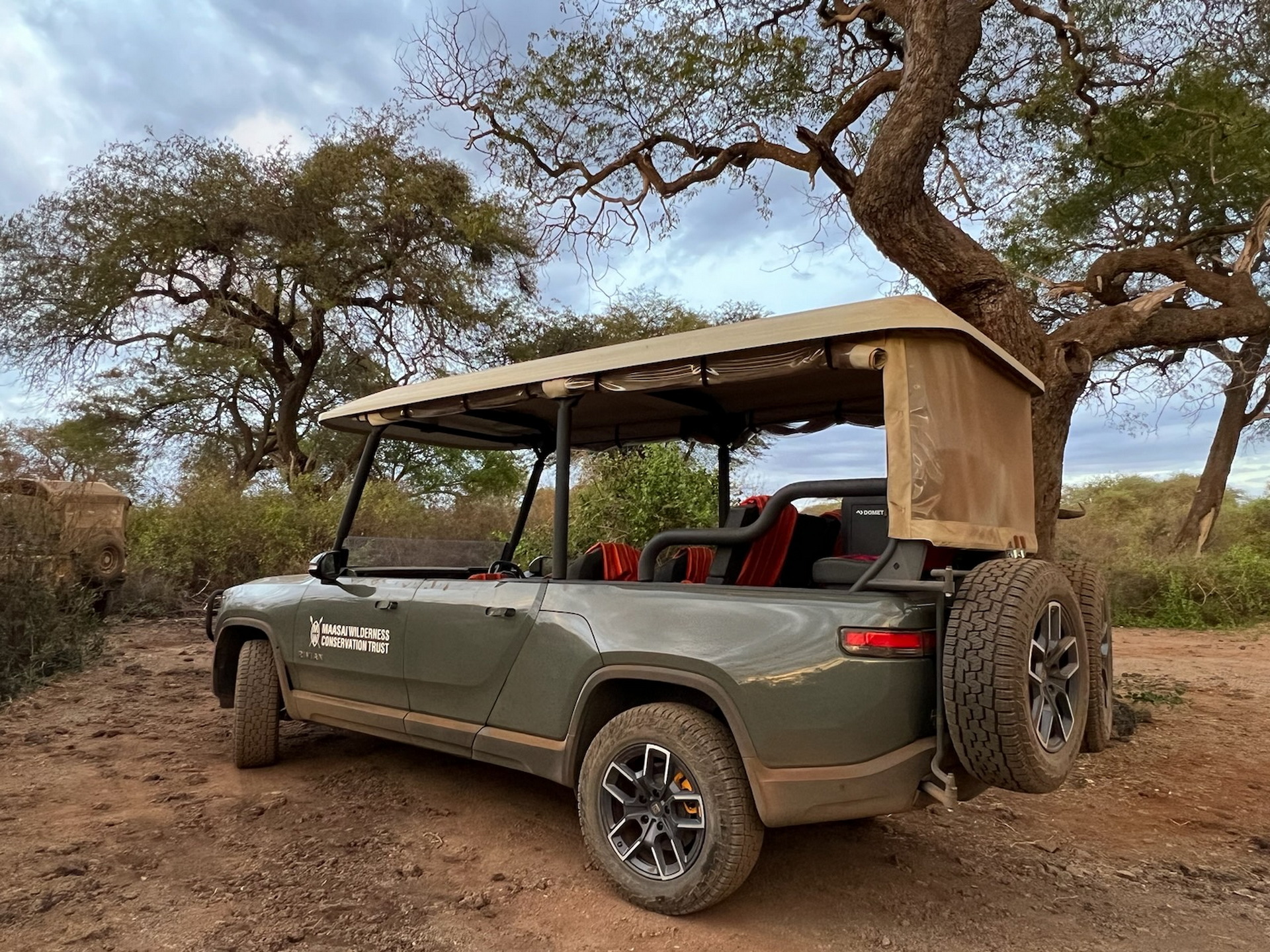The advent of electric utility vehicles has opened new doors for the prospect of clean off-roading, and it seems one conservationist organization in Africa has really used that to their advantage. The Maasai Wilderness Conservation Trust has taken a Rivian R1T and modified it to be a zero-emissions, open-air safari vehicle.
The R1T had its roof chopped off and replaced with a new windowless lofted unit, and now has two extra rows of seating compared to stock, totaling 8 seats in all. Additionally, it was converted to right-hand drive, making it the only Rivian vehicle able to claim that title.
See Also: Rivian R1T With A Hidden Bed TV Is The Ultimate Tailgate Vehicle

The truck also features a brush guard up front, and a spare tire mounted to the tailgate, the latter of which we assume isn’t an issue given that the extra seats remove the bed’s functionality. Interestingly, the R1T still maintains the use of its rear doors, despite being fastened to nothing more than half a B-pillar. We’d imagine this vehicle wouldn’t perform very well in side-impact crash tests, nor would it have the best structural rigidity, but those are likely of little concern given its use case.
Given its new proportions, the nature of its new roof, and its half-windshield, the Rivian almost looks like a jumbo-sized golf cart. That is, if a golf cart had 835 hp (847 PS / 623 kW) and went from 0-60 mph (0-97 km/h) in 3.3 seconds. All jokes aside, we think this is a really novel idea, and probably the most unique thing we’ve seen done to Rivian’s vehicles yet.
Read More: Rivian Wants Some Of Its Remote Workers To Move To Illinois Or California

The duties of the truck, according to the Massai Wilderness Conservation Trust, include “quiet anti-poaching patrols, zero tailpipe-emissions transport for Maasai firefighters and critical on-and off-road rangers’ operations, to health and education programs.”
But before people start complaining that electric vehicles aren’t truly zero-emissions because of the fossil fuels involved in their manufacturing and charging, two things are worth considering. For one, the goal of this truck is simply to not pollute the air in the immediate area it’s being used, which is accomplished regardless of any upstream emissions. For another, the electricity powering it is coming from solar power, which nullifies the arguments of naysayers two-fold. Not only does it dismiss the notion that fossil fuels are providing the energy for charging the vehicle, but also the one that charging infrastructure and access to electricity is unsustainable in this environment.
Thanks to Jason and his friend for the images!








